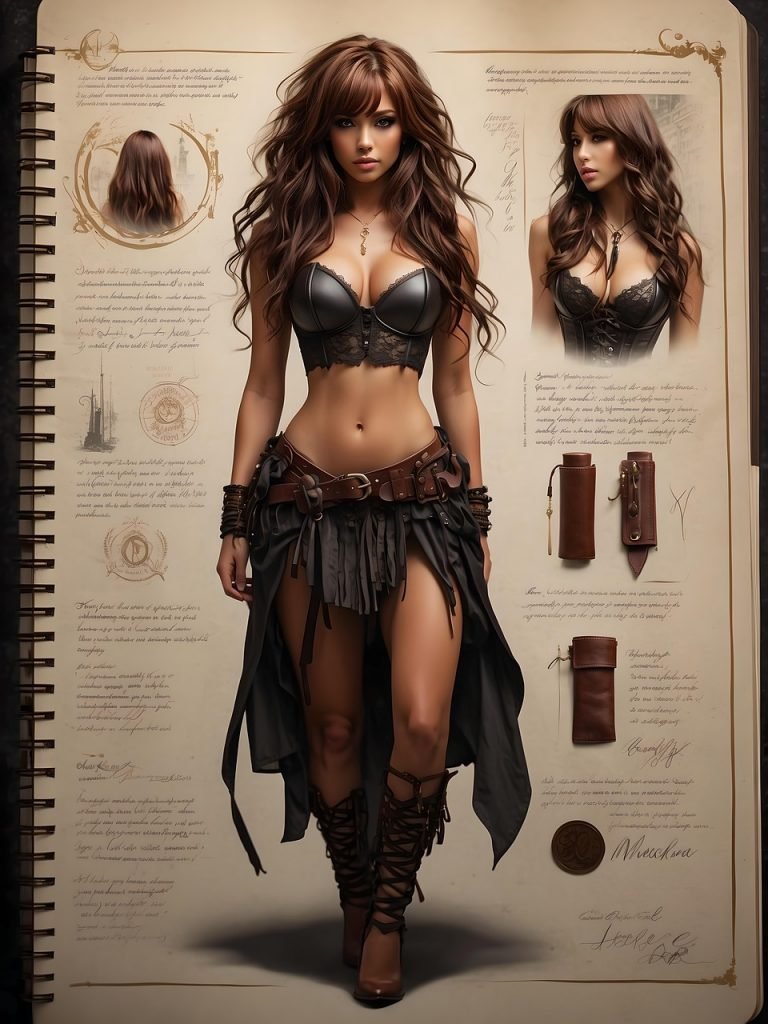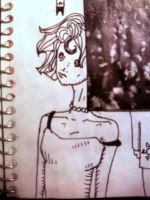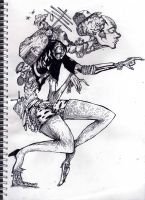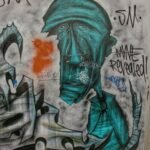A Fresh Take on Sketchbook Inspiration: Blending Art with Technology
In today’s rapidly evolving creative landscape, technology is redefining the way artists approach their craft. Digital applications and AI drawing tools are creating new possibilities for how we conceptualize, refine, and produce art. Whether you’re sketching in a physical sketchbook or leveraging powerful software like Procreate, Autodesk Sketchbook, or Adobe Fresco, blending tradition with technology can spark fresh sketchbook inspiration. This post will explore how modern digital tools are enhancing the creative process and how to incorporate them into your artistic journey.
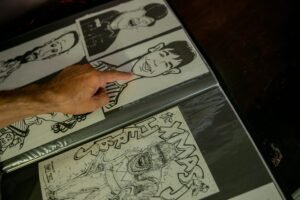
Sketchbooks.org | ARTIST MARKETING GUIDE
Get Your Artwork Seen | Proven Strategies for Building Artistic Visibility
Why Artistic Visibility Matters In today’s saturated art world, the challenge isn’t just creating great work—it’s knowing how to get your artwork seen. Visibility is key for emerging and professional artists alike. Whether you're building...
The Intersection of Art, Technology, and Sketchbooks
Art has always evolved alongside technology, allowing us to push boundaries and unlock new creative paths. From prehistoric cave drawings to digital landscapes, tools have shaped our ability to express ideas. Today, computer and AI-based drawing platforms represent the next leap in this evolution, offering efficiency, versatility, and endless opportunities for experimentation.
Why Technology is Revolutionizing Sketchbooks
- Accessibility: Digital applications eliminate many physical barriers, allowing artists to work anytime and anywhere.
- Efficiency: Advanced features like layering, symmetry tools, and predictive stroke technology streamline the creative process.
- Experimentation: With customizable brushes, AI-generated textures, and unique filters, artists can explore beyond the confines of traditional mediums.
Whether creating digitally or supplementing physical artwork with technology, embracing these tools helps broaden artistic horizons.
Digital Tools to Inspire Your Sketchbook Practice
A wide range of applications can complement traditional sketching, each offering distinctive features that cater to different artistic needs. Here’s a look at some popular platforms:
Procreate
- What It Offers: Renowned for its intuitive interface, Procreate is ideal for sketching, painting, and illustrating.
- Key Features: Customizable brushes, dynamic layering, and time-lapse recording make it a favorite for professionals and hobbyists alike.
Autodesk Sketchbook
- What It Offers: Designed to mimic the feel of traditional sketching, this application is perfect for precise designs, dynamic compositions, and quick ideation.
- Key Features: With predictive stroke technology, a wide brush library, and perspective guides, Autodesk Sketchbook empowers users to create clean, professional-quality designs.
Adobe Fresco
- What It Offers: Known for merging pixel-based and vector-based graphics, Adobe Fresco allows artists to seamlessly transition between painting and design.
- Key Features: Unique watercolor simulation tools and blending capabilities make Fresco stand out for digital painters.
AI-Powered Tools – Every changing in this new age!
- Nano-Banana in Gemini
- Co-pilot Imagine
- DALL·E: Generates visuals based on text descriptions, sparking new ideas for creative themes and compositions.
https://openai.com/index/dall-e-2/
https://openai.com/index/dall-e-3/ - Artbreeder: Focuses on collaborative image manipulation, allowing artists to explore hybrid forms and innovative designs.
- openart.ai: Offers style transfer functionality, turning digital artwork into visuals reminiscent of famous painters.
By experimenting with these tools, artists can tap into new sources of sketchbook inspiration and build a more dynamic workflow.
How Technology Fits into Sketchbook Practices
Modern digital tools don’t replace traditional methods; instead, they expand what’s possible within the artistic process. Integrating technology into your sketchbook practice can help bridge the gap between analog and digital creativity.
Using Digital Tools as Complements
Start by creating sketches in your physical sketchbook, then enhance or refine them digitally using platforms like Procreate or Autodesk Sketchbook. Incorporate the best of both worlds to elevate your work.
Brainstorm and Prototype
Applications like Adobe Fresco offer valuable prototyping features, helping you experiment with layouts, color palettes, and compositions before committing to physical or digital artwork.
Generate Inspiration with AI
AI tools like DALL·E or Artbreeder can help artists brainstorm by generating themes, imagery, or textures that spark creativity. Use these outputs as starting points for your sketchbook studies.

Techniques for Blending Tradition and Technology
Incorporating digital tools into your creative practice requires balance. Here are steps to help you seamlessly integrate both approaches:
Start with Traditional Sketching
Ground your process with physical sketches to establish strong fundamentals. The tactile nature of sketching in a physical sketchbook can inspire raw ideas that serve as the foundation for digital refinement.
Experiment Gradually
Rather than diving into multiple platforms at once, focus on learning the nuances of a single tool. For example, begin by exploring Autodesk Sketchbook’s brush library or Procreate’s layering system.
Leverage Automation for Efficiency
Digital and AI drawing tools excel at handling repetitive tasks, such as generating patterns or experimenting with color palettes. Use these features to free up time for creative refinement.
Blend Physical and Digital Mediums
Scan physical sketches into digital applications to add color, depth, or advanced effects. Alternatively, use digital printouts to incorporate hybrid techniques into physical works.

Everyday Uses of Technology for Sketchbook Inspiration
Integrating digital tools into your routine can streamline your creative process while enhancing experimentation. Here are some practical applications:
Quick Mock-Ups
Use applications like Autodesk Sketchbook to test ideas before committing them to a larger project. Quick mock-ups can help refine compositions, textures, and designs.
Visual Journaling
Platforms like Procreate allow artists to create rich visual journals that combine sketches, text, and imagery for a more dynamic documentation process.
Collaborative Projects
Many digital tools support shared workspaces, enabling you to collaborate with other artists and designers in real time.
Personal Style Development
Experimenting with brush presets, filters, and effects on digital platforms lets you refine your unique style, applying new techniques to traditional media.
Challenges and Considerations
While digital tools offer exciting possibilities, it’s important to approach them thoughtfully:
Balancing Technology and Artistic Integrity
Always view technology as an enhancement to your skillset—not a replacement for foundational sketching techniques.
Maintaining Originality
Don’t let automated features dominate your work; instead, use them to support and amplify your creative vision.
Staying Ethical
Understand the impact of AI and digital tools on intellectual property rights, ensuring that your art remains authentic and legally sound.
Closing Thoughts
As computer and AI-powered tools continue to shape the art world, integrating them into your sketchbook practice offers fresh perspectives and limitless creative possibilities. Whether using Procreate, Autodesk Sketchbook, Adobe Fresco, or AI systems like DALL·E, exploring these platforms can complement traditional techniques and inspire entirely new artistic pathways.
Experimenting with new technologies is an enriching journey, so grab your sketchbook—physical or digital—and dive into the possibilities. Your next masterpiece awaits!
Ready to Share Your Work?
Do you use reference photos or sketch purely from life?
